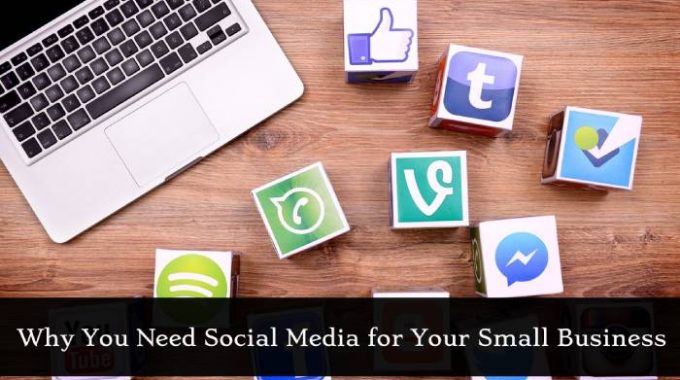Small businesses need to be careful about investing in market strategies. Your limited budget requires you to be sensible and prudent about your expenditures.
Social media marketing is one of the most dynamic and pocket-friendly strategies that small businesses can use to reach their target audience and increase sales. That’s why more and more companies are using Social Media for Business.
As a small business owner, you’re constantly on the lookout for new ways to get your potential customer base engaged with your company.
Social media in business is an excellent way to engage with current customers, as well as attract new ones. As far as social media marketing is concerned, small businesses have an advantage over big companies.
What’s the reason? Social media marketing is all about getting involved with your customer base. If you don’t engage with your customers, you cannot use Social Media for Business in a proper manner
Social Media Goals
The top social media marketing goals are:
1. To increase brand awareness
2. To Increase community engagement
3. To Increase website clicks
Social Media Analytics
As a small business, you must keep track of how your promotional contents are performing, to make a realistic assessment of your business's scope for growth.
This is an extremely important aspect of Social Media for Business. This can be determined using the following factors:
• Impressions: What impression your post created. How many times was it viewed?
• Engagements: Engagements are important because they are indicative of how deeply your customer base is involved with your message. It includes Likes, Shares, Retweets, Replies, Favorites, Clicks, and Follows.
• Engagement rates: This is the number of engagements divided by the number of views.
• Visits: The number of times a user landed on your profile page.
• Mentions: The number of times your brand was mentioned on social media.
• Followers: The number of people who follow your social media page, displayed as increasing or decreasing over time.
Why Your Business Needs Social Media
- Focus on Community and Individuals:
-
- Big and small businesses are vastly different in the way they operate. They differ in the number of employees, funds, and legal structure. But, this is not all.
-
- Small businesses tend to be more focused on communities and individuals. Small businesses typically want to establish a relationship with their customer base. When using Social Media for Business, they can connect with their customers online.
Small businesses are most likely to pay individual attention to their customers and reply to their comments. Social media is a great way for businesses to get feedback on their products.
Small businesses ask customers to post pictures of the product if they are facing any issues with it. They also entertain reviews, complaints, and queries. Forming a connection with your customers is essential because it leads to them placing a lot of trust in your company.
-
- Relatively Cheap Advertising:

Social media is free. By advertising your products on social media, you can choose whom to target, for example, a particular age group, or people with a common interest. This means you don't waste your time advertising your products to people outside your customer base.
Small businesses often have budget constraints, so instead of spending big bucks on advertising nationwide, they can localize their reach.
Using Social Media for Business, alert your followers on offers, new products, promotions, etc. Posting photos also help customers visualize your products.
With social media, you can reach your current customers as well as lure in new customers. When your customers have a personal relationship with you, they are more likely to post reviews and comments about their experience with your services. Other people can read these reviews, attracting them to your business.
-
- Personalized attention:
Small businesses are all about personalization. For some, shopping is not only about buying a good product but also having a great shopping experience.
Big businesses often don't have the time to respond to every customer, and they often give scripted responses on social media platforms. Small businesses are not like that at all.
They can answer all your queries, whether it is about the products or the organization. This personal connection with customers sets small businesses apart.
Customers are more likely to buy stuff from people who care about their needs, and a small business does that through their Social Media for Business engagements.
-
- Joint marketing efforts:
Multiple businesses often collaborate on social media platforms. Small businesses often join hands with other entities having a similar customer base.
For example, sometimes a business can offer discounts on products belonging to other companies, provided a customer buys your product. Small businesses can also team up for a giveaway or a contest.
The prize may include attractive products from both friend companies. They can also promote each other on their respective social media pages. Brand awareness can be increased by teaming up with other small businesses.
-
- SEO Rankings:

Search engines use your presence on social media to rank you. A significant social media presence means that search engines will treat your business as valuable, legitimate and relevant.
When you have a healthy presence on social media, consumers will be searching for your brand, as a result of which, your brand name might show up on the first page of Google.
That is why it is important that you keep your social media page updated, and consistently post stuff that is likely to attract customers.
-
- Riding the wave of big advertisements:
Sometimes large businesses organize events that the small ones can utilize for their promotion. Often, large organizations would encourage consumers to shop from small businesses, and this is a golden opportunity to expand their business.
Using Social Media for Business means you will always stay up to date with these developments that can help your business grow.
In conclusion, a strong social media presence is essential for a small business, as it helps them reach out to their current customer base and keep them engaged, as well as attracting new customers.





